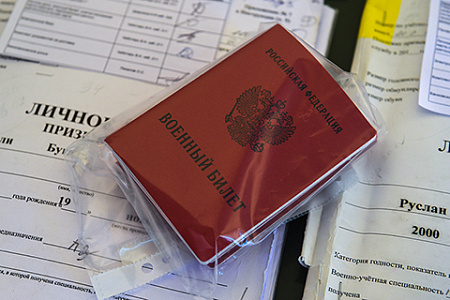The evaders will be blocked from traveling abroad, and they will be given a life prison term for treasonThe legislators do not intend to limit themselves to the changes already introduced after the start of the special military operation (SVO) in Ukraine to the rules of conduct of citizens.
In April, they submitted to the State Duma another series of amendments to the current legislation.
An amendment is being considered, suggesting tougher responsibility for terrorism and treason. Now the guilty face a life prison sentence, said the head of the Committee on security and anti-corruption Vasily Piskarev.
The State Duma in the second and third readings adopted two laws that simplify the procedure for recognizing the dead and missing servicemen involved in the SVO. They will help simplify the procedure for issuing a certificate of death of a serviceman, not only by medical organizations, but also by other authorized persons. It is also proposed to extend the provisions of the Civil Code of the Russian Federation regarding the recognition of military and civilians as missing, deceased, deceased or missing in the special operation zone and nearby regions.
The State Duma adopted a bill on peacekeepers in the first reading. It will allow young people serving on conscription (and not just as contract soldiers now) to take part in peacekeeping missions on a voluntary basis. As explained by the head of the defense Committee Andrey Kartapolov, citizens undergoing military service will be sent there only at will. They will serve in positions "where there is no risk to life" and perform "simplified tasks" while in the bases of peacekeeping forces. To do this, the conscript "must submit a report on the command to undergo special training or transfer to a military unit that is being prepared under this program."
The State Duma adopted in the second and third readings a law on the creation of a unified electronic register of military registration. The unified database of conscripts being created will contain the full amount of personal information, including basic documents. It is assumed that at the same time, state structures will use a single system of interdepartmental electronic interaction (SMEV).
New ways of sending subpoenas are being introduced – by registered letters, as well as electronically through the portal "Public Services" and delivery through the MFC. At the same time, the old methods – handing over the notification in the hands and through the employer – are preserved. The legal force of the summonses transferred to the conscript in different ways will be the same. A specific mechanism for sending subpoenas in new ways will be approved by a government decree.
When using the Public Services portal, the summons will be considered handed over "from the moment it is posted in the citizen's personal account on the relevant information resource." It will be placed in a special "register of subpoenas", which will be developed by the Ministry of Finance with access through a personal account on "Public Services" or through the MFC.
A citizen of the Russian Federation who did not appear on the agenda will be obliged to come to the military commissariat on his own during the next draft within two weeks after its start.
The amendments suggest a ban on traveling abroad, managing transport, obtaining loans and some other property transactions for those who received summonses but did not appear on them within 20 days. A citizen liable for military service will be considered a draft dodger if he refused to receive a summons or, for example, does not get in touch, Kartapolov explained. "Russia is promptly correcting the shortcomings in the military accounting system that were revealed in 2022," he added.
"We believe that these changes meet the requirements of the time and the capabilities of our modern digital system and their implementation will significantly increase the efficiency of military accounting and, as a result, the combat capabilities of our armed forces," Kartapolov concluded.
The activities of the legislators were commented on by the press secretary of the President of the Russian Federation Dmitry Peskov. "If people have questions, it is the duty of both the state machine and our people's deputies to clarify these issues. Therefore, we just need to be patient here," he said.
Most of all, citizens are concerned about amendments to the law "On Military Duty and military Service" and related ones. According to Peskov, the work carried out in this area is "absolutely necessary" – digitalization of the entire system is needed, "so that it becomes really understandable, fast, informative and easy for all citizens."
At the same time, both Peskov and Kartapolov assured journalists that a new wave of mobilization is not planned. H

